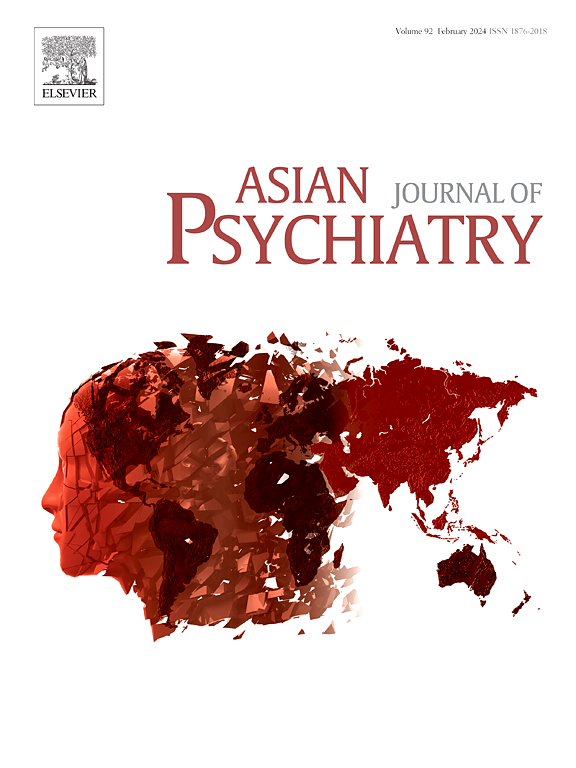A Google Trends analysis exploring public interest in common psychiatric conditions and non-pharmacological interventions
IF 3.8
4区 医学
Q1 PSYCHIATRY
引用次数: 0
Abstract
Background and objectives
To use Google Trends for analyzing public interest in common psychiatric illnesses such as Depression, Anxiety, Bipolar Disorder, Post-traumatic Stress Disorder, and Obsessive-Compulsive Disorder, along with their various treatment modalities, in the United States over the past 10 years, in order to provide insights into emerging treatment modalities and their popularity among the population.
Methodology
A cross-sectional study was conducted from May 7 to June 6, 2024, using Google Trends data, specifically Relative Search Volume (RSV) from 2014 to 2023. Relative Search Volume is a metric provided by Google Trends, it is normalized to a scale of 0–100, where 100 represents the peak popularity of a search item within the selected time frame and location. Various psychological diseases and treatment modalities were searched individually, with all data and statistical analysis performed using Microsoft Excel and R v4.3.2.
Results
The analysis revealed an overall increase in annual search interest for various mental health conditions, with Anxiety peaking in 2023 and Depression reaching its highest Relative Search Volume (RSV) in 2019. While Bipolar Disorder (BPD), Obsessive-Compulsive Disorder (OCD), and Post-Traumatic Stress Disorder (PTSD) also showed an upward trend, their increases were less pronounced. Additionally, search interest in therapeutic interventions, including Cognitive Behavioral Therapy (CBT), Psychotherapy, and Dialectical Behavioral Therapy (DBT), significantly increased from 2019 to 2023 compared to 2014–2018 (p < 0.05). In contrast, Electroconvulsive Therapy (ECT) had higher search frequency in the earlier period. These findings suggest a growing public interest in mental health conditions and evidence-based treatment options in recent years.
Conclusions
Limitations of this study include the use of Google Trends data, which relies on RSV rather than absolute search counts, which may not fully capture the extent of public interest. Additionally, the data cannot differentiate whether the searches were made by patients or healthcare professionals. However, the study’s findings reflect a growing recognition and acceptance of diverse treatment approaches for mental health conditions, and concludes that while Google Trends is useful for analyzing public interest in psychiatric illnesses, further research is needed to ensure the reliability of the results.
求助全文
约1分钟内获得全文
求助全文
来源期刊

Asian journal of psychiatry
Medicine-Psychiatry and Mental Health
CiteScore
12.70
自引率
5.30%
发文量
297
审稿时长
35 days
期刊介绍:
The Asian Journal of Psychiatry serves as a comprehensive resource for psychiatrists, mental health clinicians, neurologists, physicians, mental health students, and policymakers. Its goal is to facilitate the exchange of research findings and clinical practices between Asia and the global community. The journal focuses on psychiatric research relevant to Asia, covering preclinical, clinical, service system, and policy development topics. It also highlights the socio-cultural diversity of the region in relation to mental health.
 求助内容:
求助内容: 应助结果提醒方式:
应助结果提醒方式:


